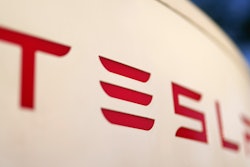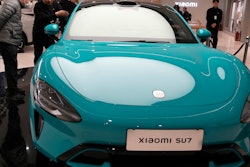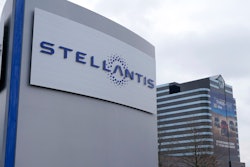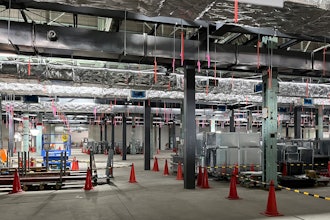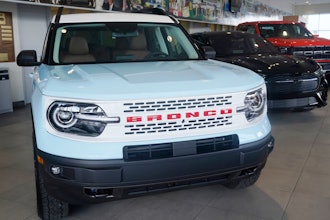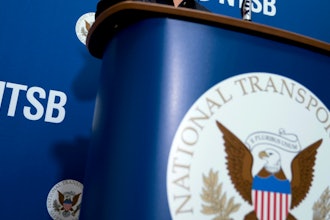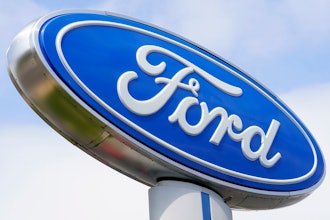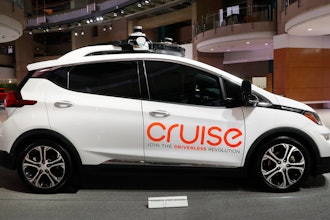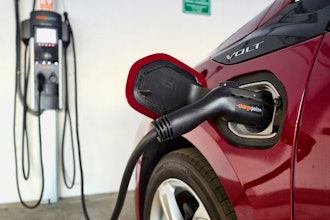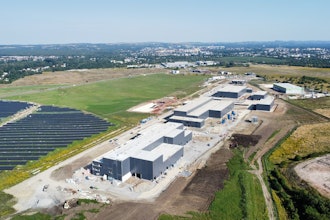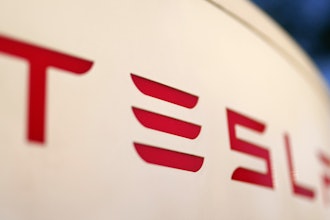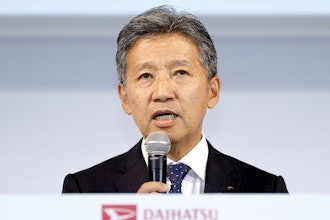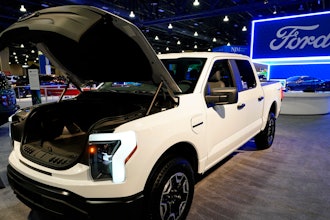Seoul, Korea-based Kia Motors Corporation, along with its parent company Hyundai Motor Group, quickly rose the ranks of the international automotive marketplace at the beginning of the millennium. Because of its rapidly-growing need for production, and rising marketshare in North America, the company, in the middle aughts, began to pursue the possibility of a U.S. manufacturing operation to serve customers in the area. Today, in West Point, Ga., the company produces hundreds of thousands of vehicles a year.
Randy Jackson, VP of HR and Administration with Kia Motors Manufacturing Georgia, Inc. (KMMG), was the first American hire that Kia made during its transition into American manufacturing, and is the highest-ranking American currently at the company. Before Kia, he spent years with Toyota and Mercedes-Benz, both of which had previously implemented plants in the Southeast, helping them ramp up and expand with new facilities and new vehicles. And once with the company, Jackson helped bring in all the necessary equipment, hire up an entire workforce and bring it all into production.
If anyone knows about the process of bringing an incredibly immense and complex operation into a new country, and the current environment of working in the American Southeast, it’s him.
And Jackson’s efforts have become a major success story for both parties involved — Kia has found itself nestled within a cluster of educated workers and eager suppliers, with all of the benefits therein; and Georgia has, in the timesince, helped get 3,000 people into good-paying jobs within the Kia plant that utilize much-needed skills.
Kia is also living up well to the generally-accepted rule that manufacturing has a “multiplier effect” of nearly five corollary jobs for every one manufacturing job. Kia is right on track, having helped create 14,000 jobs directly among suppliers. That doesn’t even count all the other positions necessary to keep a growing community functioning — those working in restaurants, banks, grocery stores and much more.
And speaking of jobs, Jackson says that one of the main reasons that major automakers have clustered in the Southeast is the unique and beneficial characteristics of its workforce. Georgia, in particular, used to be a hotbed of textile manufacturing, with many thousands employed in plants that have since shuttered.
Because many of those people were looking for work, Jackson had access to a depth of skills and the right characteristics — he says textiles were perceived as having “strong ethics and a good learning workforce that understood coming to work, understood shift work.” Add to that many people with agricultural backgrounds, well-versed in mechanical work and highly disciplined, and there were more than enough applicants to work with.
The need for a good workforce is critical, Jackson says. Only if the available workforce is good can a company even consider locating or expanding in a certain region. He adds, “I almost refer to it as peeling an onion. Every layer has its purpose, but the core is the workforce. The most important is the workforce.”
Jackson didn’t have to do all the education and training himself, however — Georgia’s Quick Start program, which works in conjunction with manufacturers expanding within the state, helped get a training program up and running. Officials with Quick Start visited Toyota and Mercedes plants in the region to take a look at existing training centers, and even flew to Korea to see how Hyundai and Kia ran their initial plants. All of this, free of charge to Kia, thanks to a plan in Georgia that rewards companies for making major capital investments and hiring in large numbers.
Together, Kia and Quick Start established the Kia Georgia Training Center, which served to train up an entire workforce to fill the plant and make it operational. Jackson says, “[Quick Start officials] met with all of us to get information that needed to be gathered about every process and every system that we needed to build our vehicle out. They captured all that knowledge and put it into standardized formats: manuals, worksheets, etcetera. When we started bringing people on, we had a system they could follow and learn, plus an evaluation of how they were scoring out.”
He adds: “Even up to today, we have a joint partnership with our training center along with Quick Start. They’re good executors, good teachers, good trainers, and good developers of programs. However, they needed us to provide subject-matter information. A lot of us that came in early came out of automotive and had a lot of experience. So, they could get in our heads pretty quickly and get that information.”
That training process is a little bit different than what many manufacturers rely upon, but it has worked well for Jackson and KMMG at large. Applicants undergo a 40-hour “pre-hire” assessment on their own time. Jackson says this was implemented because they wanted a long-term investment from the candidate, not someone who was simply looking for a paycheck. In addition, it gave many applicants the ability to try out KMMG while still holding down their current job, so that if they began to realize that the pace, learning curve and discipline necessary was too much, they could go back to what they were doing previously.
Of the Georgian workforce, Jackson says, “I sometimes describe the workforce as a ‘sponge,’ where everything you would tell them would stay with them. They were very attuned to learning new skills and then applying those skills. For the most part, most people hung in there, skilled up very well, and have been with us long-term.”
Clearly, Jackson has seen great success for automotive manufacturing in the Southeast throughout his career, and particularly with KMMG. He says for most companies, particularly in the automotive sector — OEM and supplier alike — it’s hard to invest too heavily in the Southern states right now.
The recipe is working, and leading to massive expansions across the board. Jackson says KMMG is expected to produce roughly 360,000 vehicles at West Point this year, which means that more suppliers, even those based in Asia, are looking to develop plants local to KMMG. Yet another, Hyundai Dymos, very recently announced a new plant with an expected 350 new jobs.
The company is only seeing more suppliers, more cars and more jobs in the future. KMMG was the first automaker to experiment with three shifts, to “experience the pros and cons of it,” as Jackson says. Since then, others have followed suit. Jackson is proud of that accomplishment: “We’ve been able to lead that charge to break that mold and try something new that, for a long time, no one was willing to do.”
And Jackson isn’t willing to accept that old complaint that foreign-owned manufacturers aren’t truly committed to American manufacturing, or aren’t helping the economy in the same way that American-owned ones are. He says, “We’re making a big dent in bringing unemployment down by putting people back to work. People spend, they pay taxes, they’re a lot happier, and they can change their lives. We’re a good corporate citizen.” KMMG has spent millions in developing comprehensive STEM programs to create more engineers and technical-oriented adults in Georgia.
As a whole, KMMG is bullish about the future of manufacturing in America, and not just in the Southeast region, or even Georgia alone. It’s clear that they’re not here entirely due to being close to the customer — there is true merit in manufacturing here. Jackson says that the automotive industry is “a global market,” meaning that companies have to make manufacturing work wherever they are, even if it means customized solutions for each.
But in Georgia, is seems that it’s not just a matter of having to produce there to satisfy the marketplace — the West Point plant is one of the most productive in the company, and has quickly become a benchmark for performance and productivity. Jackson says, “Both Hyundai and we have seen that doing business in America is very favorable for us, as a global company, and we hope customers will continue to buy the brand and we can continue to grow so that one day we can produce more.”





